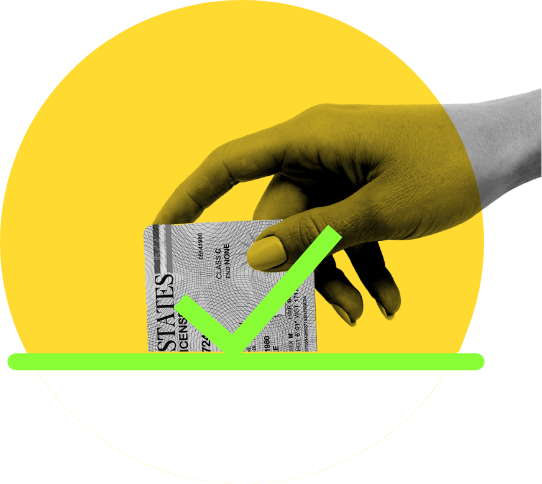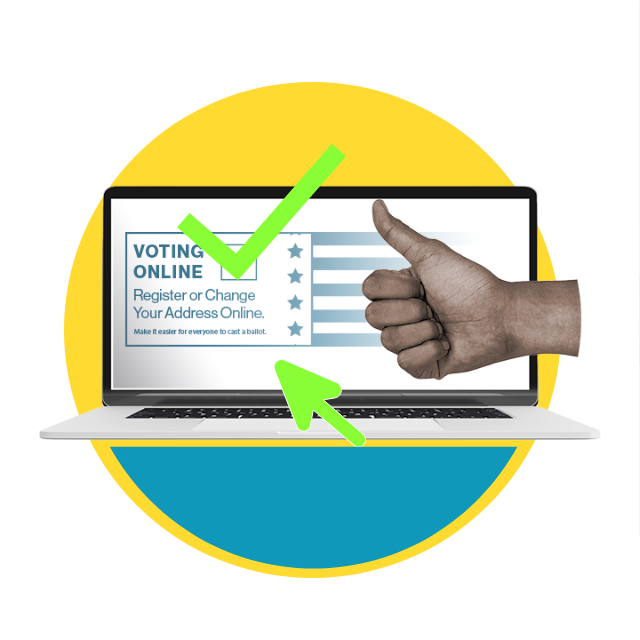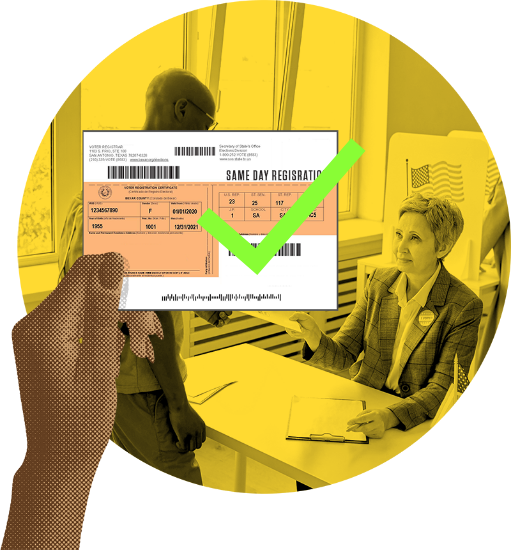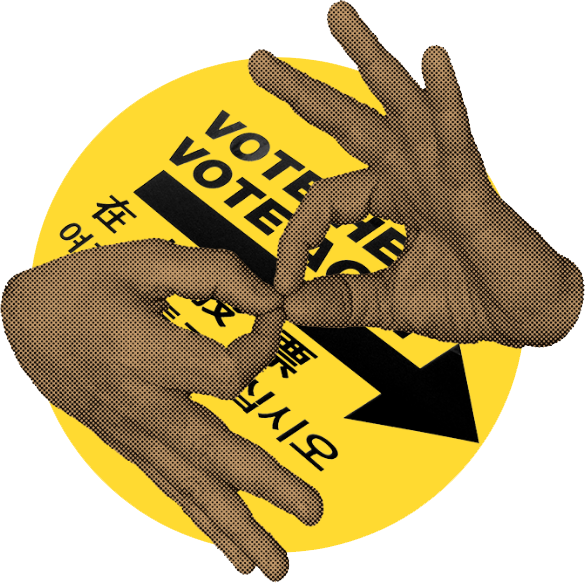Despite the 1993 National Voter Registration Act (NVRA), too many U.S. Americans are not registered to vote. Advocacy is necessary on every level of governance and election administration to make sure voters have access to the ballot box.
18
Between January 1 and July 14, 2021, at least 18 states enacted 30 laws that restrict access to the vote, including many Southern states. —Brennan Center for Social Justice, July 22, 2021
Automatic Voter Registration
Automatic Voter Registration (AVR) is a powerful answer to registration challenges, allowing for the automatic registration of every voter during interactions with the DMV or other government agencies. In states that have already approved AVR, registration rates are significantly higher than they were before the policy was implemented, the cost of voter registration has decreased substantively, and voter rolls are more accurate and secure.

Online Voter Registration
Online Voter Registration (OVR) makes registration more convenient for voters, saves money for states, and leads to voter rolls that are more accurate and secure. In the more than two-thirds of states that have passed and implemented OVR, voters can register, verify, and update their registration records all online, leading to a more streamlined experience for both voters and the state and encouraging civic participation among new voters, especially young people.

Same-Day Registration
Same Day Registration (SDR) is one of the most powerful tools for enfranchising and protecting voters. SDR facilitates voting among voters who move frequently, creates a safety net for voters who may have been inadvertently removed from the rolls, and provides a convenient last minute registration opportunity for all voters. In North Carolina, the one Southern state that allows it, SDR is utilized by Republicans, Democrats, and Independents alike, as well as by every single age group and by several racial and ethnic groups across the state. SOLVE members across the South support SDR as an important enfranchisement tool and one that especially supports voting among young people, communities of color, and others who face barriers to the ballot box.

Language Access
Language minorities often face multiple and significant barriers to voting, a reality that is exacerbated by the frequent lack of assistance for these voters at the polls. It is critical to ensure that all election materials — from registration forms and the ballot to signage at the polls — be translated into any language spoken by non-native English-speaking communities in any given precinct.

RESOURCES
Early Voting Advocacy
Overview of efforts to secure popular pre-Election Day voting access.
